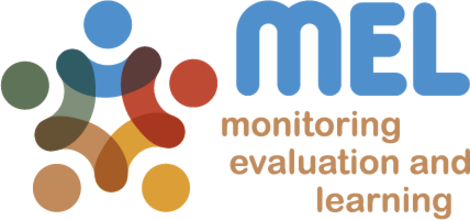
Monitoring, Evaluation and Learning (MEL) is multi-center and multi-CRP online platform for
integrated management, monitoring, and reporting of projects, from planning to budgeting, risks’
assessment, knowledge sharing and more. MEL creates synergy between research and development
partners, bridging competences in a results-oriented platform. MEL allows to save resources and
time, reducing paperwork, facilitating administrative steps, quickening project related
communications and enabling near real-time data collecting to inform decision-making.
MEL holds a flexible structure that can be tuned with impact pathways and results frameworks
used by CGIAR and donors. Its modular structure allows the implementer to customize the platform
and re-shape it to meet their specific needs.
The platform comes with an integrated Open Access repository that boosts the projects outreach.
Carved in the system is the Knowledge Sharing tool-set, which includes an internal discussion
forum, a technical assistance chat, project dedicated web-pages, and a communication-friendly
module to write and disseminate project related blog stories.
MEL safeguards intellectual property and provides full credit to the authors of knowledge
reported, making use of international metadata standards such as Dublin Core. The platform has
been aligned with HR management, internal finance and internal sharing systems (e.g. One
Corporate System – OCS, SharePoint).
MEL is the result of the synergic efforts by CGIAR Research Program on Grain Legumes and Dryland
Cereals (GLDC), CGIAR Research Program on Roots, Tubers and Bananas (RTB), CGIAR Research Program
on Fish Agri-food Systems (FISH), The International Center for Agricultural Research in the Dry
Areas (ICARDA), The International Potato Center (CIP), The World Agroforestry Center (ICRAF),
The International Institute of Tropical Agriculture (IITA), ICARDA Geoinformatics Unit (GU), and is
powered by iMMAP, Codeobia, D-Space and Amazon Web Services.
The Global Geo-informatics Context and Options (GeCO) is a new web-based GIS tool that enables
its
users to define, monitor, assess and co-create knowledge and learning on relevant Sustainable
Land
Management (SLM) options that match the social-ecological context at global, regional and
national
scales.
The GeOC tool aims to support the implementation of SLM practices by the local international
communities by providing them with context-specific information that is required to make sound
investment decisions for agricultural and rural development.
The GeOC is designed to provide land users, development projects or programs, and policy
decision-makers with plausible, robust
extrapolation domains for guiding decisions on the selection and use of SLM options, and an open
platform for docking different disciplinary projects into integrative/holistic and converging
actions for
promoting SLM at scale.
GeOC is the result of the synergic efforts by CGIAR Research Program on Dryland Systems
(CRP-DS), the International Center for Agricultural Research in the Dry Areas (ICARDA) and its
Geoinformatics Unit (GU), and is powered by iMMAP, Codeobia, D-Space and Amazon Web Services.
ICARDA INTERNATIONAL NURSERIES
ICARDA has the global mandate for barley, lentil and faba bean and a regional mandate for
chickpea, durum and bread wheat improvement within the Consultative Group of International
Agricultural Research (CGIAR). ICARDA’s commodity improvement programs develop nurseries for a wide
range of agricultural systems and distributes them worldwide upon request. All nurseries are
developed, prepared and dispatched from the ICARDA’s Headquarters in Lebanon, except winter
barley and wheat from ICARDA, Turkey.
The international nursery trialing system is an integral part of the commodity improvement programs
of ICARDA and NARIs partners. It provides the cooperators with the opportunity to evaluate the
genetically diverse germplasms generated through conventional and modern breading methodologies
under their own agro-ecological conditions and socio-economic contexts. For this process to
succeed, effective data collection and timely sharing is crucial.